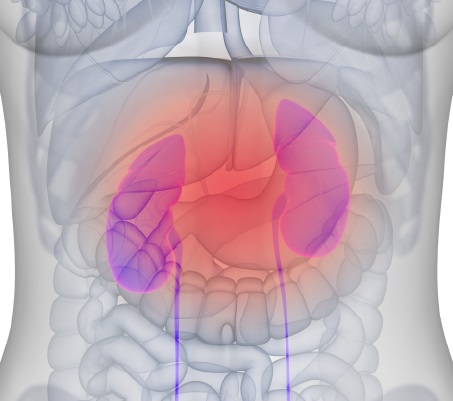
FAST FACTS: Kidney Stones
Kidney stones can be extremely painful and may become large enough to block the ureter, which is the tube from the kidney to the bladder and stop the flow of urine. Typically, kidney stones cause a sudden onset of mid-back pain, not necessarily related to physical activity, or can cause lower abdominal pain on the side of the stone. Stones are most common and frequent in men over 40.

Possible Causes of Kidney Stones
- High levels of certain substances in the urine
- Infection or genetic disorders
- Dehydration, especially in an older population
What the Healthcare Professional Will Assess
- Pain in abdomen, back, groin, or testicles
- Associated symptoms such as blood in urine, fever, chills, nausea, vomiting
- In severe cases, patients may not be able to pee
- Tests may include blood tests and a variety of x-rays or scans
Possible Interventions
- Non-Drug Treatments
- cooling measures for fever
- positioning
- warm compress for pain management
- increased amounts of water (6-8 glasses a day) to help pass stones
- Medications
- Opioids for severe pain associated with the passing of stones
- Diuretics or sodium bicarbonate to decrease stone formation or help flush stones
- Surgery if the stone is too large to pass on its own
What Else You Should Do
- Write down and share information about your loved one’s pain with their healthcare provider
- Use a Pain Diary to note important information useful to the healthcare provider
- Encourage your loved one to try a non-drug treatment and document the impact on their pain in their Pain Diary
References:
- WebMD. June 27, 2020. Kidney Stone Signs and Symptoms. Accessed 3.13.2022. https://www.webmd.com/kidney-stones/understanding-kidney-stones-symptoms
- Mayo Clinic. May 5, 2020. Kidney Stones. Accessed 3.13.2022. https://www.mayoclinic.org/diseases-conditions/kidney-stones/symptoms-causes/syc-20355755
Revised January 2022
